- Home
- Vince Flynn
Consent to Kill Page 2
Consent to Kill Read online
Page 2
“His name is Rapp…Mitch Rapp.”
The prince concealed his joy. Rashid had been planning this moment for months. It had started when his friend had asked him to find out what had happened to his son, who had left the kingdom to fight in Afghanistan. Rashid had used his sources in the intelligence community and discovered a great deal more than he ever revealed. Slowly, he fed his old friend the information that he knew would lead him to demand nothing short of vengeance.
“Saeed, do you know what you ask of me?” The prince spoke in a well-rehearsed and dire voice. “Do you have any idea who this Mitch Rapp is?”
“He is an assassin, he is an infidel, and he is the man responsible for the death and defilement of my son. That is all I need to know.”
“I must caution you,” Rashid said very deliberately, “this Mitch Rapp is an extremely dangerous man. He is rumored to be a favorite of the American president and the king as well.”
“He is an infidel,” the bereaved father repeated as he turned to the religious man. “I have listened to your sermons. Are we not in a war for the survival of Islam? Have you not told us to take up arms against the infidels?”
What little face that could be seen through the thick gray beard showed nothing. The sheik simply closed his eyes and nodded.
Saeed looked back to the prince, his old friend. “I am not a politician or a statesman, or a man of God. I am a businessman. I don’t expect either of you to publicly or privately support what I am going to do. All I am asking, Rashid, is that you point me in the right direction. Give me a name and I will handle the rest.”
With the exception of Saeed’s public proclamation, Rashid couldn’t have been more pleased with how things were proceeding. He had predicted his friend’s response almost perfectly. He sat stolidly, not wanting to appear too eager. “Saeed, I know of a man who is very skilled in what you ask. He is extremely expensive, but knowing you as well as I do, I doubt that will be an issue.”
Saeed nodded his head vigorously. He had easily made billions, first by putting up phone and power lines around the kingdom and other countries in the region and now by laying thousands of miles of fiber-optic cable.
“I will send him to see you, but you must make no mention of our meeting here today to him or to anyone else. I share your anger, and I wish you success, but you must give me your word as my oldest friend that you will never speak of my role in this to anyone. The Kingdom is a very dangerous place these days, and there are brothers of mine who would not be as sympathetic to your plight as I.” Rashid’s reference to Saudi Arabia’s pro-American government was obvious.
Saeed sneered. “There is much I would like to say, but as you said the Kingdom is a very dangerous place these days. You have my word. I will speak of this to no one. Not even to the man you send.”
“Good,” smiled Rashid. He stood and helped his friend to his feet. The two began walking across the cavernous room, leaving the cleric sitting alone. “Because, my friend, if you succeed in killing Mr. Rapp, and the Americans find out you were behind it, the king will cut off your head. If you fail, and Mr. Rapp finds out you were behind it…he will visit you and your family with more pain than you can imagine.”
Saeed nodded. “How will I recognize the man you send?”
“He is a German. There will be no mistaking him. He is infinitely capable. Just tell him what you want, and he will take care of the rest.”
3
MONTREAL, CANADA
R app arrived the next morning on a Falcon 2000 executive jet leased through a front company in Virginia. A certified pilot, Rapp was the acting copilot on the flight and was dressed accordingly. With the uniform, and a well-used, but fake passport, he breezed through a cursory customs inspection at the private airport and hailed a cab to the hotel where the team was staying. It was Saturday morning. The team’s seventh day. There were four of them, including Coleman. Their history with Rapp went back a decade and a half. Each knew how the others operated, and they all trusted one another, which in their line of work was no small thing.
Coleman was waiting for him in the hotel room, ready to bring him up to speed on the tactical situation. The other three men were out keeping an eye on the target. The former SEAL was about an inch shorter than Rapp. He normally kept his blond hair close cropped, but he’d let it grow out, so it spilled over the top of his ears and touched his shirt collar in back. There was a wave to it with a slight curl. He was lean and athletic, but had a relaxed way about him that could be very deceptive. Confident in his abilities, he no longer felt the need to prove anything. He had done it all, survived some really nasty stuff, and lived to keep his mouth shut. That was the way of the SEALs. They might exchange war stories with each other, or other operators, but that was as far as it went. They were a tight fraternity—one that didn’t like braggarts.
Rapp set his flight bag down on the one bed and looked down at the map spread out on the other one.
“Here’s the hotel, here’s the mosque”—Coleman pointed to one spot and then the other—“and here’s his apartment.”
Rapp looked down at the map of downtown Montreal and the surrounding neighborhoods. “How long does it take him to walk from the mosque to the apartment?”
“He averages five minutes and twenty-three seconds. Quickest time is four minutes and eighteen seconds. He was late for prayer and in a hurry. Longest time was just over ten minutes. He stopped to talk to someone along the way.”
“Any signs of surveillance by the police or the intelligence service?”
“Nothing.”
Rapp frowned. “That’s strange.”
“I thought so at first, but then I got to thinking that maybe they’ve got someone on the inside.”
“A fellow worshiper?”
“Yeah.” Coleman pointed to an eight-by-ten surveillance photo of the mosque. “We’ve picked up some chatter. Not everyone agrees with his radical interpretation of the Koran.”
Rapp’s right eyebrow shot up in surprise. “You’ve got the mosque wired?”
“No. We’ve been able to monitor the worshipers as they come and go using parabolic mikes. Caught a couple older guys yesterday after Khalil delivered his Friday afternoon sermon. They think he’s a cancer in their community. A bad influence on the kids. Filling their heads with all of this talk of jihad and martyrdom.”
This did not surprise Rapp. The overwhelming majority of Muslims did not agree with what these terrorists were doing in the name of Allah. Rapp just wished they were more vocal about it.
“Anything else?”
“Yeah. He’s a real pious bastard, this one. We got into his apartment yesterday during the afternoon sermon. The whole building empties out, so we figured it was pretty safe. We took a look at his computer.” Coleman extracted a memory stick from his pocket. “Copied his hard drive for you.”
Rapp grinned and took it. “Thank you.”
“It’s filled with porn.”
“No way?”
“Dead serious. A lot of really kinky shit. Mostly bondage.”
Rapp studied the memory stick. “You just never know with these idiots, do you?”
“Nope, but it doesn’t surprise me one bit.”
“Yeah, I suppose you’re right. They’re all running from something. What else?”
“Best spot to hit him is obviously between the mosque and the apartment. Five round trips a day. Before sunup, just after noon, late afternoon, just after sunset, and then my favorite…his ten o’clock trip.”
“Why not early in the morning?”
“It would work,” said Coleman, “but the sunrise call to prayer has double the attendance that the evening one does. By the time he heads home it’s almost eleven, and the streets are empty.”
“He walks alone?” Rapp asked, still not believing the intel report he’d received earlier in the week.
“Yep.”
This guy was a real moron, but pretty typical when you looked at his early years. Khalil Muh
ammad, Egyptian by birth, had grown up in the clutches of an offshoot of the Muslim Brotherhood, indoctrinated into the strict unyielding brand of Islam perpetuated and funded by the Wahhabis out of Saudi Arabia. At the age of fifteen he and a group of peers stoned a reporter to death for writing an article that was critical of the madrasa they attended. The religious school he attended had sent every single one of its graduates off to fight in the Afghani war against the Soviets. It was rumored that many had been sent against their will.
While the others stood trial for the stoning, Khalil fled to Saudi Arabia, where he received further religious instruction at the hands of the Wahhabis. In his early twenties he completed his studies and became an Imam. At twenty-six he immigrated to Canada with the express purpose of building a new mosque and spreading the Wahhabi faith to North America. His mosque grew rapidly and as a reward he was granted funding to build a second mosque in France.
Khalil’s comings and goings went unnoticed for the most part. Until 9/11. After that everything changed. When Khalil was finally arrested by the French it was due to his involvement in a plot to pull off a Madrid-style train bombing in Paris. He had recruited six young men, none of them over the age of seventeen, to act as martyrs. Khalil had promised them great rewards in paradise. They would be purified and exalted. They would be remembered as heroes and their families would be taken care of and given great respect. His recruits would do all the heavy lifting. Khalil would remain in the shadows. It would have worked, but the CIA was already on to Khalil. The hackers at Langley were breaking through firewalls as fast as they could in an effort to track the money the Saudis were sending overseas. They stumbled across Khalil and alerted the French DST.
When the authorities went to raid his apartment they came up with nothing incriminating. But the dogs that had come along on the raid seemed unusually interested in a separate apartment down the hall. They broke down the door and found suicide vests and enough explosives to level the building. Khalil went to jail along with the six boys. They all kept their mouths shut and there they sat for over a year while the intelligence services tried to figure out how much they could tell the police without giving away the family jewels. By the time the case ended up in front of a judge, Franco-American relations were near an all-time low. The judge was appalled by the lack of hard evidence put forth by the state. In the case of Khalil, no crime had been committed. He was a religious man who was guilty of nothing more than association with some bad apples. The judge ordered his immediate release. The six boys were charged with possession of dangerous materials and given a paltry sentence. Khalil was sent back to Canada. Within a week he was back in his mosque calling the young men to jihad and decrying the very authorities who protected his right to do so. The French judge had infused him with a false sense of invincibility.
In truth Rapp had bigger problems to worry about, but this guy had gotten under his skin. Three weeks earlier in Afghanistan a car had smashed into a barricade outside a U.S. facility. When the guards approached they found a rock on the gas pedal and a semiconscious boy chained to the steering wheel. The car was filled with explosives which thankfully didn’t go off due to a faulty detonator. The boy was cut free and soon afterward began telling his story to anyone who would listen. He said that his parents had immigrated to Canada from Yemen when he was a child. Sheik Khalil Muhammad had arranged for him to go to Saudi Arabia for religious instruction, but upon arriving in Mecca he was bound, gagged, and knocked unconscious. The next thing he remembered was being pulled from the car by American soldiers.
All of this information was passed on to the Canadian Security Intelligence Service who in turn tried to question Khalil about the boy’s kidnapping. Khalil became instantly belligerent and got his lawyer and the Muslim Council of Montreal involved. Canada’s solicitor general, a wimp if there ever was one, balked at the specter of being labeled intolerant, and yanked on the Intelligence Service’s chain. They were told to stay away from Khalil and his mosque. People went missing all the time the world over. Just because the kid got grabbed did not mean Khalil had a hand in it.
Rapp was not so trusting. He put Marcus Dumond, his best hacker, on the case and within thirty-six hours Dumond was coming up with all kinds of irregularities in Khalil’s banking records. He was still up to his neck in Wahhabi money, and he had also sent two other boys to Saudi Arabia for religious instruction. Thus far they had not been able to verify if the kids were actually in school, but the parents had confirmed that they had not heard from their children in several months. They had been told it would probably be a year before they would hear from them due to the strict religious regimen of the school. Rapp smelled a rat, and the rat was Khalil Muhammad.
There were worse offenders out there, to be sure, but this one was too close to home. Too brazen. Who knew what he would try next if he was left unchecked? No, it was better to deal with him now. Make an example of him. Kennedy wanted him to disappear, but Rapp had an even better idea. The more he mulled it over the more he liked it.
Rapp walked over to the window, looked out at the gray sky, and said, “All right, here’s what we’re going to do.”
4
I t was a cool, crisp evening and perfect walking weather, so that’s what Rapp did. He wanted to get his blood flowing. The collar of his black leather coat was turned up, and a worn Montreal Canadiens hat sat on his head. He’d picked up both at a thrift store as well as a pair of jeans and hiking boots. He paid in cash and was grateful there weren’t any surveillance cameras. The jacket was perfect, at least in terms of what he was looking for. It had big square oversized pockets in the front. Good for holding weapons. No flaps. Good for extracting weapons. There was a tear on the left shoulder seam, but that was all right. He wouldn’t be hanging out at the Ritz. Both the mosque and Khalil’s apartment were in a rundown part of town. It was a pity he couldn’t keep the jacket, but there was a pretty good chance he was going to get blood on it. This one was going to be messy. When it was over everything he was wearing would be thrown into a garbage bag and tossed into the St. Lawrence River.
Rapp kept his hands stuffed in the oversized pockets and his chin down. In the left pocket was a tactical Rip Cord knife, and in his right pocket a silenced 9mm Glock 26. He’d brought both weapons into the country concealed in the false bottom of his flight bag. Since the CIA, through a subsidiary, leased a large portion of the private airport in Virginia, it was easy to get the bag past security, and upon landing in Canada he did not have to worry about having his flight bag x-rayed. The gun was there as a precaution. The knife would be the instrument of choice. The intent was to send a message. Actually several messages.
He’d seen all the photographs, memorized the street maps, noted the vague patterns of the police squads that patrolled the neighborhood. Compared to most of the ops he’d run, this one ranked pretty low on the risk meter. When Rapp told Coleman what he wanted to do, the former Navy SEAL took it in stride. He asked a few questions, and tried to poke a hole in the plan, but didn’t try too hard. The plan was solid, the target was a lamb. That’s what they called guys like Khalil. Guys who couldn’t bite back. The only real concern was the police, but they weren’t very aggressive in their patrols. Once an hour at the most.
Coleman knew better than to argue with Rapp. There were more than a few people back in DC who would flip if they knew he was planning on exposing himself like this, but unlike them, Coleman had seen him in action enough to defer to the younger man’s expertise. Rapp was the perfect balance of athleticism, grace, and skill. Coleman had worked with the best, and he was one of them himself. The tight fraternity of Special Forces operators was made up of men who were pushed and trained to the absolute limits. He’d known a few guys who were better shots than Rapp, a few more who were stronger, and maybe only one or two who could match his endurance. But they all lacked Rapp’s experience, which is the one thing training can never fully substitute for. His operational instincts were unsurpassed. He could take a look at
a tactical situation and dissect it in seconds, coming up with the most efficient way to get from point A to B.
So there was no arguing. Rapp would be the man on the ground. Coleman and his team were manning the surveillance, and in place for backup in case anything went wrong. No one argued with Rapp’s deployment of assets. In truth the men were bored. Six days of surveillance on a guy who was this careless got old real quick. Coleman and his team were restless. The sooner Rapp got it over with the happier they’d be. They’d go back to America. They’d get paid in cash, and they’d get on with their families, friends, and jobs.
Rapp was not trying to prove anything. He didn’t need to. Especially to these men. They’d seen him handle far more difficult situations. There was nothing brave or bold about what he was about to do. It wasn’t like he was charging a machine-gun nest or taking down a building with men shooting back at him. But in the interest of expediency he was going to handle this one. He wanted it done a certain way, and didn’t want to have to explain it to Coleman and his men. It was just better if he did it himself.
Rapp entered the alley from the east. He was wearing a tiny wireless earpiece and Coleman was giving him updates.
“That’s the one. Turn left.”
Rapp didn’t reply. He simply turned and started down the dirty alley. He was in a two-story canyon of bricks and mortar. At the street level on each side were dry cleaners, video rental, restaurants, an electronics store, and a menagerie of restaurants and the other businesses that dot the urban landscape of any big city. The second stories consisted of offices and a few apartments. Coleman and his team had done a good job. This was a perfect site for the takedown.

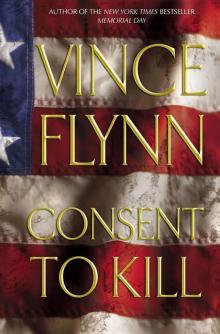 Consent to Kill
Consent to Kill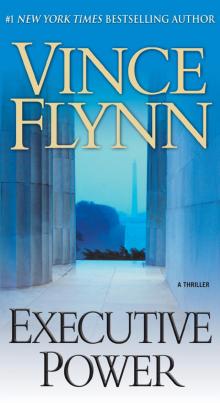 Executive Power
Executive Power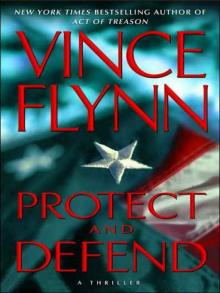 Protect and Defend
Protect and Defend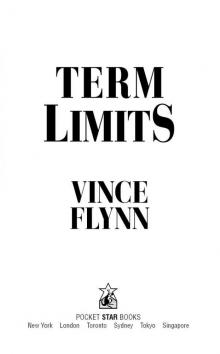 Term Limits
Term Limits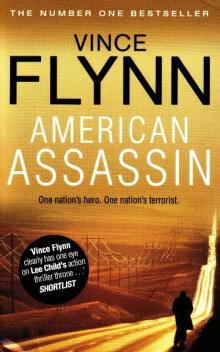 American Assassin
American Assassin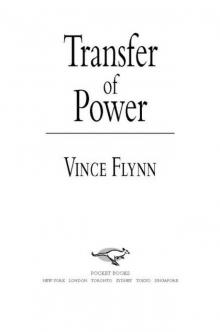 Transfer of Power
Transfer of Power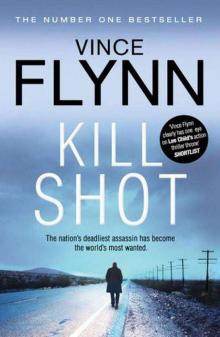 Kill Shot
Kill Shot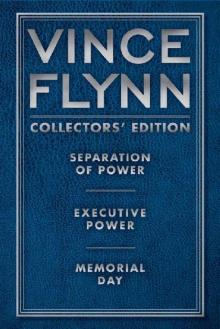 Vince Flynn Collectors' Edition 2
Vince Flynn Collectors' Edition 2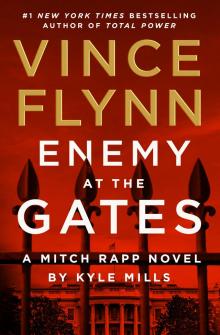 Enemy at the Gates
Enemy at the Gates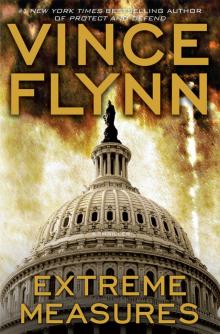 Extreme Measures
Extreme Measures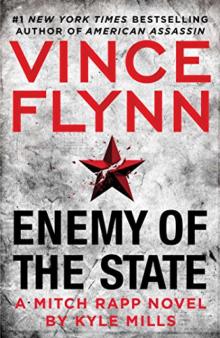 Enemy of the State
Enemy of the State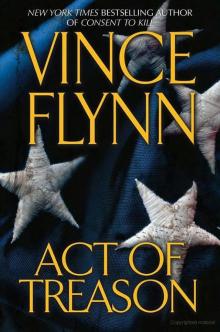 Act of Treason
Act of Treason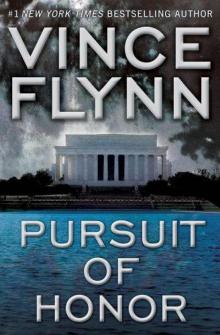 Pursuit of Honor
Pursuit of Honor The Survivor
The Survivor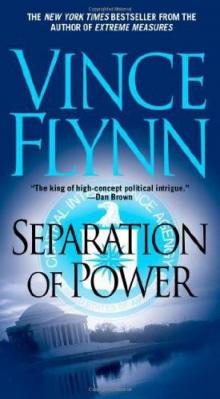 Separation of Power
Separation of Power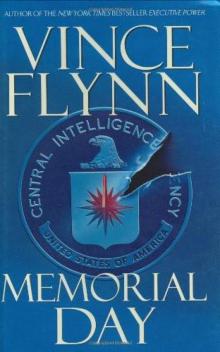 Memorial Day
Memorial Day The Last Man
The Last Man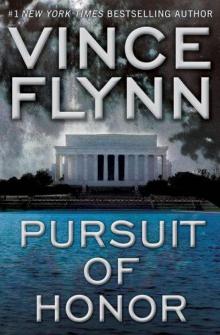 Pursuit of Honor_A Thriller
Pursuit of Honor_A Thriller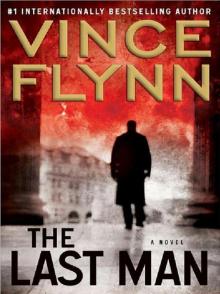 Mitch Rapp 13 - The Last Man
Mitch Rapp 13 - The Last Man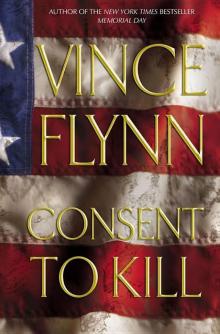 Consent to Kill:
Consent to Kill: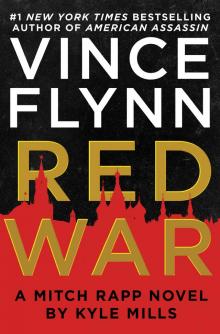 Red War
Red War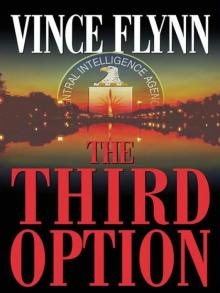 Mitch Rapp 02 - The Third Option
Mitch Rapp 02 - The Third Option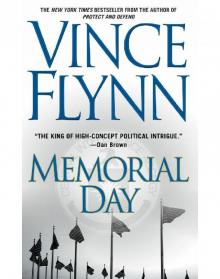 Mitch Rapp 05 - Memorial Day
Mitch Rapp 05 - Memorial Day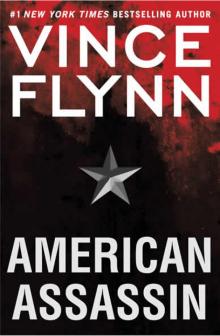 Mitch Rapp 11 - American Assassin
Mitch Rapp 11 - American Assassin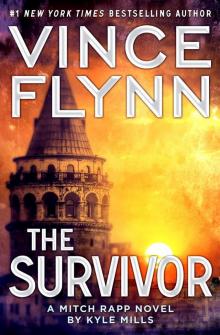 Mitch Rapp 14 - The Survivor
Mitch Rapp 14 - The Survivor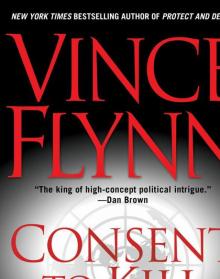 Mitch Rapp 06 - Consent to Kill
Mitch Rapp 06 - Consent to Kill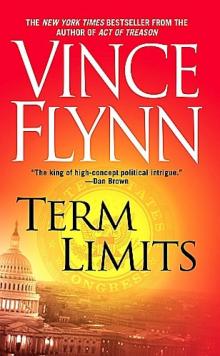 Term Limits mr-1
Term Limits mr-1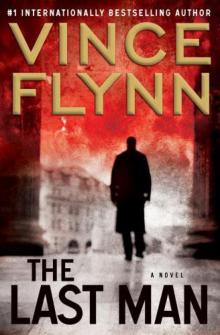 The Last Man mr-13
The Last Man mr-13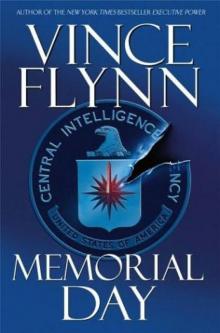 Memorial Day mr-5
Memorial Day mr-5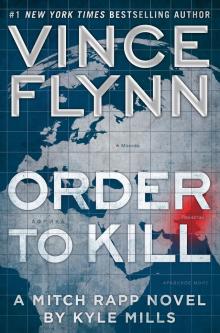 Order to Kill
Order to Kill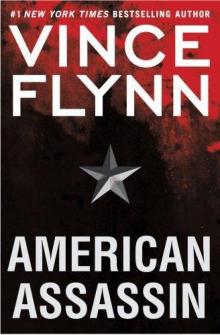 American Assassin: A Thriller
American Assassin: A Thriller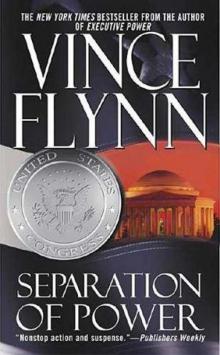 Separation of Power mr-3
Separation of Power mr-3